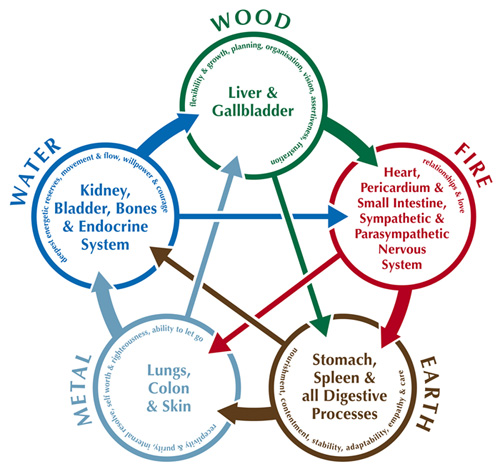Recently I read an article stating that poor sleep can increase women’s risk of Heart Disease by 75% (see link). In a general basis, lack of sleep affects all aspects of our lives but 75% increase of suffering from a heart disease is extremely significant and specially on women only. The Sleep Foundation states that 40% of women are more likely to have insomnia (type of sleep issue that persists for months) than men are.
If we dig in a bit further in the study, it says that sleeping less than seven hours a night and waking up too early or throughout the night can increase a person’s future risk of stroke, heart attack, and myocardial infraction (type of heart attack that occurs when blood flow decreases or stops in one of the coronary arteries of the heart, causing tissue death to the heart muscle).
Now, Cardiovascular disease (with or without sleep) is the leading cause of death in women where many factors are involved, and poor sleep is a major health issue for women, especially in midlife.
Therefore we know there is a close link between long-term sleep issues and heart disease but it is unclear how long-term sleep problems impact the risk of heart disease.
As a conclusion, the study underscore the need to improve heart disease by improving the sleep issues.
According to a Sleep Foundation’s survey, the most common treatments to treat their insomnia is sleep hormone therapy (metionin’s supplementation), sleep prescription and in minor consumption, sleep aids such as CBD.
What Chinese Medicine can tell us about it?
In Chinese Medicine, (TCM), there is always a reason behind any medical condition. Lack of sleep or periods of insomnia happen more in women than men and they struggle the most in midlife. The reason why is caused by an abnormal menstrual cycle.
It is common knowledge that menstrual cycles differ in women however they’re categorized as normal because each woman is different. However suffering from abnormal cycles It is a mistake with consequences.
In Chinese Medicine, we spend a lot of time going through the details about the flow of a period because all the small signs and symptoms tell a part of the entire health story. In my clinic, no matter what condition (non-traumatic) you come in, I will always collect details about the cycle as it defines the best course of action.
Chinese Medicine considers a normal menstrual cycle as follows:
- Cycle Length: A healthy menstrual cycle should last between 28-32 days. Even though this differs from woman to woman it should be pretty close to this.
- Smooth transition: Your menstrual cycle should flow, pun intended, with a smooth transition between the four phases (Menstruation, Follicular, Ovulation and Luteal). Spotting, pain, headaches, or moodiness that only happen during the same part of your cycle is a sign that something is off or not as it supposed to be.
- Menstrual blood: Your flow should be bright red, without clots, and at a moderate volume. If you’re noticing clots or dark blood, there is some unbalance.
- Healthy ovulation: In TCM, ovulation is a key part of a healthy menstrual cycle. Your cycle length should be consistent, your basal body temperature should be stable, and you should be producing fertile cervical mucus during ovulation.
- Feeling good: hardly measurable but significant. TCM believes that a healthy menstrual cycle reflects a healthy body. If you’re feeling good and don’t have discomfort throughout the cycle, you’re on the right track. Usually if a woman visits a practitioner, it already means something.
Therefore, menstrual disorders such as amenorrhea, dysmenorrhea, irregular periods, heavy or light menstrual flow and PMS affects the basal health of a person which maintained over time drifts into something more serious such as increasing the chances of developing cardiovascular disorders.
During and after the menstrual cycle, there is a loss of blood and essence. If it is not replenished properly after each cycle, this pattern develops into a syndrome defined Liver Blood Deficiency. The same happens after giving birth, stressful schedules, missing meals every now and then and even lack of sleep (overwork related sometimes) which makes this syndrome worse. Note this is quiet normal at middle-age life of any average woman nowadays: making too many plans on the calendar (increasing insomnia), eating cold foods and raw foods (snacks at work or cold foods in the wrong season), lack of exercise (is there any time?) makes the condition even worse.
A Blood deficiency gives us some signs every now and then as feeling cold, headaches, dizziness after getting up from the coach, awful back pain being worse at morning which doesn’t improve with heat or movement. If untreated, it adds an additional symptom: poor blood circulation.
Here is when it lands the correlation between abnormal menstrual cycle and higher risks of heart disease: a progressive blood deficiency developing into poor blood flowing affecting the cardiovascular system.
Many factors are involved, many lifestyle changes are required and the body requires more time to go back to balance if we start making changes late in life (the older we’re getting, the poor our blood circulation becomes) so the blood deficiency gets worse in time too.
Look at out 5 elements diagram below:

Photo by Ping Ming Health
The Wood element (which relates to the Liver) generates the Fire element (which relates to the Heart). If the Wood gets depleted (generation of Blood), the next element in course, Fire (circulation of Blood), also gets affected because doesn’t get enough. In the long-term it becomes a chain reaction affecting the whole body.
Image by Freepik



